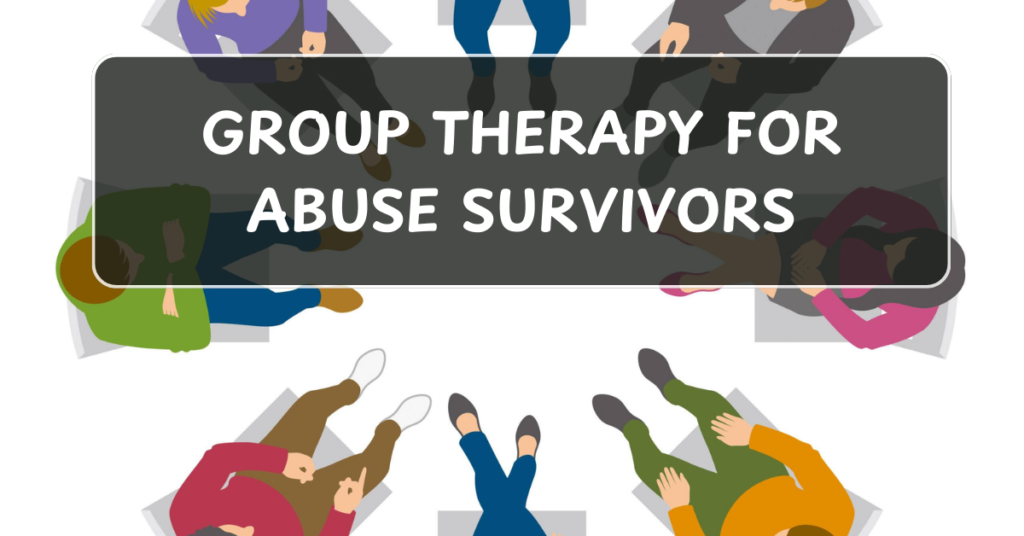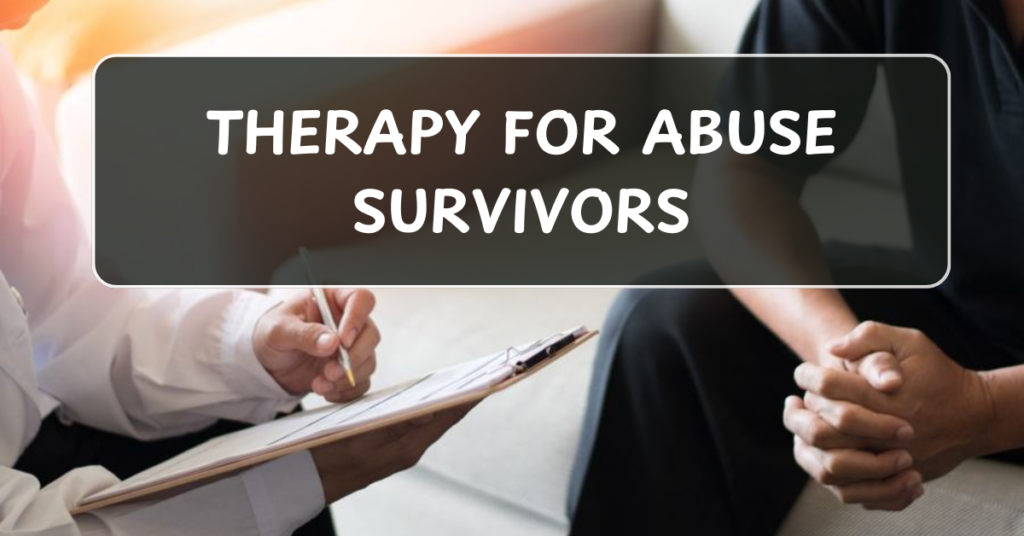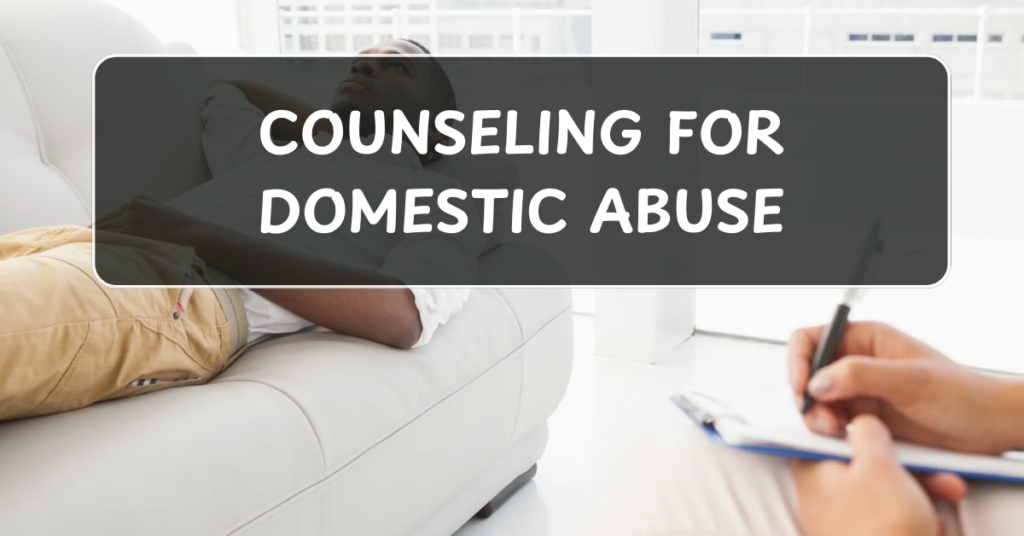
Survivors of abuse often face overwhelming emotional pain, trauma, and isolation, making recovery seem daunting. However, group therapy offers a unique and powerful healing experience by providing a supportive community where survivors can share their stories, learn from others, and heal collectively. In this article, we will explore the benefits of group therapy for abuse survivors, how it works, and why it can be an essential step on the path to recovery.
1. What is Group Therapy for Abuse Survivors?
Group therapy for abuse survivors is a therapeutic approach that brings together individuals who have experienced similar forms of abuse, such as physical, emotional, sexual, or verbal abuse. Led by a trained therapist, group therapy provides a safe, confidential space for survivors to process their experiences, gain insight, and work on healing alongside others who understand their struggles.
- Structure of Group Therapy: Group therapy typically consists of a small group of individuals, often ranging from 6 to 12 participants. Sessions are held regularly, with a therapist guiding the group through various activities, discussions, and coping strategies.
- Focus on Healing and Recovery: The primary goal of group therapy is to support emotional healing, build resilience, and foster a sense of community and belonging among survivors of abuse.
2. Benefits of Group Therapy for Abuse Survivors
Group therapy offers several unique benefits that make it an effective option for abuse survivors:
A Safe and Supportive Environment
- In group therapy, participants can share their experiences in a safe, non-judgmental environment. Knowing that others have gone through similar struggles creates an immediate sense of empathy and understanding. Survivors are encouraged to speak openly, knowing they are supported by those who truly understand their pain.
Reduced Isolation
- Abuse survivors often feel isolated and disconnected from others due to shame, guilt, or fear of not being believed. Group therapy combats this isolation by connecting individuals who share similar experiences. Participants can feel less alone and more empowered as they build relationships with others who are walking the same path toward healing.
Empathy and Validation
- One of the most powerful aspects of group therapy is the opportunity to receive empathy and validation. When survivors hear others share similar experiences, it helps to normalize their emotions and reduce feelings of shame or self-blame. This shared understanding fosters a sense of belonging and reinforces the idea that healing is possible.
Learning from Others
- Group therapy allows survivors to learn from others who are at different stages of recovery. By sharing coping strategies, insights, and lessons learned, group members can offer each other valuable tools for healing. Often, hearing about how others cope with trauma can provide new perspectives and approaches that participants might not have considered on their own.
Building Communication Skills
- In group therapy, participants practice communicating their feelings, needs, and boundaries. This can help survivors rebuild trust in themselves and others, improving their ability to express their emotions and engage in healthy relationships. Developing these skills is a vital part of the healing process after abuse.
3. Common Topics Covered in Group Therapy for Abuse Survivors
Group therapy sessions for abuse survivors cover a wide range of topics designed to facilitate healing and growth. Some common themes include:
1. Understanding Abuse and Trauma
- Learning about the different forms of abuse and the psychological, emotional, and physical effects of trauma is essential for understanding the impact it has on one’s life. Education can empower survivors to recognize patterns of abuse, break free from them, and begin the process of healing.
2. Coping with Flashbacks and Triggers
- Flashbacks and trauma triggers can be overwhelming for survivors. Group therapy provides a space for survivors to discuss their triggers and learn strategies to manage them, such as grounding techniques, mindfulness, and breathing exercises.
3. Rebuilding Self-Esteem and Self-Worth
- Abuse often leaves survivors feeling worthless or unlovable. Group therapy offers a supportive environment to rebuild self-esteem, develop healthy self-worth, and challenge negative beliefs about oneself. Group members encourage each other to recognize their strengths and reclaim their power.
4. Boundary Setting and Assertiveness
- Survivors of abuse may struggle with setting boundaries due to fear of rejection or conflict. Group therapy helps participants learn to establish and enforce healthy boundaries, empowering them to protect themselves from future harm and engage in healthier relationships.
5. Healing from Shame and Guilt
- Shame and guilt are common emotions among abuse survivors. Group therapy helps survivors address and overcome these feelings by providing a space to process their experiences and replace self-blame with self-compassion.
6. Moving Forward and Creating a New Narrative
- As survivors progress in their healing journey, group therapy offers support for creating a new narrative and rebuilding a life free from the trauma of abuse. This may involve setting personal goals, developing a new identity, and making choices that prioritize well-being and growth.
4. How to Find Group Therapy for Abuse Survivors
Finding the right group therapy for abuse survivors is essential for a successful healing experience. Here are some ways to locate group therapy options:
1. Talk to a Therapist or Counselor
- If you are already seeing a therapist, ask them about group therapy options for abuse survivors. They may have recommendations for support groups or treatment centers that specialize in trauma recovery.
2. Reach Out to Support Organizations
- Many organizations dedicated to supporting survivors of abuse offer group therapy programs. For example, domestic violence shelters, sexual assault recovery centers, and local nonprofits may host support groups for survivors. These organizations often provide free or low-cost services.
3. Online Therapy Platforms
- Online therapy platforms, such as BetterHelp or Talkspace, may offer virtual group therapy sessions for abuse survivors. Online groups allow individuals to participate from the comfort of their own homes and connect with others who understand their struggles.
4. Community Centers or Hospitals
- Community centers and hospitals may also offer therapy groups for survivors of abuse. Look for local mental health clinics, trauma recovery programs, or support groups that cater to the specific type of abuse you have experienced.
5. What to Expect in a Group Therapy Session
Group therapy sessions are structured and facilitated by a licensed therapist who creates a safe, confidential space for participants. Here’s what you can expect in a typical group therapy session:
- Introduction and Check-In: Each session usually begins with a check-in, where participants briefly share how they are feeling or any struggles they’ve encountered since the last meeting.
- Focused Topic or Discussion: The therapist may introduce a specific topic, such as coping strategies, boundary-setting, or self-care, and facilitate a group discussion around it. Participants can share their experiences, ask questions, and offer advice.
- Exercises and Activities: Group therapy may include exercises to help participants practice new skills, such as role-playing, relaxation techniques, or journaling prompts.
- Support and Reflection: At the end of each session, participants are given time to reflect on the discussion and share any final thoughts. The therapist ensures that everyone feels heard and supported before closing the session.
6. Conclusion: The Power of Healing Together
Group therapy for abuse survivors offers a powerful, supportive environment where individuals can share their experiences, gain strength from others, and learn valuable skills for healing. By participating in group therapy, survivors not only gain practical tools for coping with trauma but also find connection, empathy, and hope for the future. If you are a survivor of abuse, group therapy could be a transformative step toward reclaiming your life and healing from the past. Remember, you don’t have to face recovery alone—healing is possible with the support of others who truly understand.


